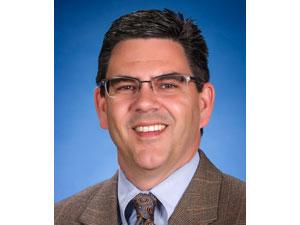To prevent smuggling city wants check on private wharfs
CEBU, Philippines – The Cebu City government is calling on authorities to look into the operation of private wharfs in its neighboring areas, fearing the possibility that they are being used to smuggle goods. In its recent meeting, the city’s Police Coordinating Advisory Council (PCAC) disclosed it has received intelligence reports that private wharfs outside Cebu City are “not in any way monitored or regulated.” “It is more than likely that the entry of contrabands to Cebu City and province ensue in these unmonitored private wharfs,” reads the minutes of the meeting furnished to the press. The PCAC considers the reports as “alarming.”
“Exchange and transport of smuggled products, drugs and prohibited or illegally-seized goods, and other related illegal activities are also likely to take place in these ports,” the minutes read further.
PCAC has requested the PNP Maritime group, the Cebu Port Authority, the Philippine Navy and other law enforcement agencies to look into the wharfs’ operations.
Lear MoreUSP starts field trials of FDA fake drug screening device
CD3 imageThe US Pharmacopeial Convention has started field testing a new low-cost screening device designed to detect counterfeit and poor quality medicines quickly. The handheld CD-3+ unit – originally developed by the US Food and Drug Administration (FDA) – uses multiple light sources to look at packaging using different wavelengths and provide images that can be interpreted by the user to differentiate between genuine and falsified medicines. The approach may also be applicable to individual tablets.
USP and the Center for Pharmaceutical Advancement and Training (CePAT)- which was launched last year to equip national and local regulatory authorities in Sub-Saharan Africa with the knowledge and skills to promote access to quality medicines – will carry out the field trials.
Lear More
Counterfeit clippings: news in brief
The Pharmaceutical Research and Manufacturers of America (PhRMA) has been denied involvement in an ongoing lawsuit in Maine, US, which is trying to repeal a law that allows state residents to buy medicines from other countries such as Canada, reports Pharmalot. The drug industry organisation has been using the lawsuit as a platform to warn of the dangers of allowing people to import drugs from overseas, which it maintains raises the risk of exposure to falsified, expired or low quality medicines. The judge in the case has concluded however that PhRMA should be shut out from proceedings because it was unable to demonstrate how drugmakers could be harmed by the law. Responding to its exclusion, PhRMA associate general counsel John Murphy said the organisation “continues to believe that Maine’s drug importation law conflicts with FDA’s authority to regulate prescription medication distribution in the US.”
Lear More
Screening technique detects illegal cosmetics
Eye make up Researchers in Belgium have road-tested a technology that could be used to screen cosmetic products for illegal whitening agents.
The team from the Scientific Institute of Public Health used a technology called attenuated total reflectance infrared spectroscopy (ATR-IR) alongside simple chemometric analysis to identify samples of creams, lotions and soaps containing illegal substances.
They recorded spectra for 150 suspicious cosmetic products and compared them to test samples representing both bona fide agents – with approved whitening agents such as kojic acid, arbutin and nicotinamide – as well as illegal agents that were adulterated with corticosteroids, hydroquinone and the severe acne drug tretinoin.
Lear More

Warning issued about fake turmeric powder in UAE
Product may have adverse health effects, says expert at the Ministry of Health
Dubai: The next time you rub that turmeric powder onto your aching knees and back, think again.
The Drugs Control Laboratory in the Ministry of Health (MOH) has warned the public against some fake herbal products. Chemical substances that are harmful to human health also get into the packaging of these herbal products.
“The drugs control laboratory in the Ministry of Health checked a sample of turmeric powder, which is used by some individuals for the treatment of knee and back pain, brought from Asian countries and traded spontaneously,” Dr Amin Hussain Al Amiri, assistant undersecretary for Medical Practices and Licensing at the Ministry of Health, said.
Some herbal products contain chemical additives that come from unknown sources and have no expiry dates, Al Amiri said.
http://gulfnews.com/news/gulf/uae/health/warning-issued-about-fake-turmeric-powder-in-uae-1.990133
Lear MoreThe Health and Economic Effects of Counterfeit Drugs.
The issue of counterfeit drugs has been growing in importance in the United States, with the supply of these counterfeit drugs coming from all over the world. Innovation is important to economic growth and US competitiveness in the global marketplace, and intellectual property protections provide the ability for society to prosper from innovation. Especially important in terms of innovation in healthcare are the pharmaceutical and biopharmaceutical industries. In addition to taking income from consumers and drug companies, counterfeit drugs also pose health hazards to patients, including death. The case of bevacizumab (Avastin) is presented as one recent example. Internet pharmacies, which are often the source of counterfeit drugs, often falsely portray themselves as Canadian, to enhance their consumer acceptance. Adding to the problems are drug shortages, which facilitate access for counterfeits. A long and convoluted supply chain also facilitates counterfeits. In addition, the wholesale market involving numerous firms is a convenient target for counterfeit drugs. Trafficking in counterfeits can be extremely profitable; detection of counterfeits is difficult, and the penalties are modest.
Conclusion
Counterfeit drugs pose a public health hazard, waste consumer income, and reduce the incentive to engage in research and development and innovation. Stronger state licensure supervision of drug suppliers would be helpful. Technological approaches, such as the Radio Frequency Identification devices, should also be considered. Finally, counterfeit drugs may raise concerns among consumers about safety and reduce patient medication adherence.
Intellectual property represents original, creative works and innovations who belonging to inventors, artists, musicians, and authors who, and businesses that, create something or acquire rights to a creation. The exclusive rights and legal protections of intellectual property come in the form of copyrights, trademarks, and patents. These protections encourage innovation and creativity, but the rewards for innovation and creativity can be undermined by widespread theft associated with counterfeiting and trafficking of pirated goods. The Internet has become an important and convenient means for consumers to shop and save money. However, websites that traffic counterfeit goods have flourished on the Internet, creating confusion between which sites sell authentic goods and which do not.
https://www.ncbi.nlm.nih.gov/pmc/articles/PMC4105729/
Lear More
Reynolds American-Sponsored Website Looks at ‘New Tobacco Road’
Site designed to raise awareness of black-market cigarette trade
WINSTON-SALEM, N.C. — Cigarette smuggling costs states an estimated $5.5 billion annually. Much of that traffic takes place on the East Coast along Interstate 95, as cigarettes from lower-tax states are being smuggled to states with higher taxes in the Northeast. A new website, sponsored by RAI Services Co., a subsidiary of Reynolds American Inc., calls the I-95 corridor “The New Tobacco Road.”
The website draws attention to the problem to encourage states to pass stiffer penalties for smuggling and devote more resources to enforcement.
The website, www.thenewtobaccoroad.com, shows how I-95 has become a key transit route for cigarette smuggling from southern states to the Northeast. The illegal profits that are being derived from these operations benefit an organized-crime infrastructure already experienced in transporting illegal drugs and other contraband, and fostering violent crime up and down the I-95 corridor.
Reynolds American launches site, teams with ex-fed to raise awareness on cigarette trafficking
RICHMOND, Virginia — Reynolds American Inc. is inviting lawmakers, law enforcement officials and others to take a trip along “the New Tobacco Road,” where organized criminals are garnering huge profits for smuggling cigarettes and selling them on the black market with a quick drive along the East Coast’s major interstate.
The owner of the nation’s second-biggest tobacco company launched a website Thursday aimed at raising awareness of cigarette trafficking, which is estimated to cost states $5.5 billion annually in lost tax revenue. Reynolds said it hopes the site with studies and news reports will help illustrate that cigarette smuggling isn’t a victimless crime and provide governments with information about stiffening penalties and increasing enforcement.
Lear More
Europe minister calls on Spain to operate reasonable regime at frontier
Minister for Europe David Lidington says he is impressed by the ‘significant steps’ taken by the Gibraltar government to tackle tobacco smuggling. Having said that he says that smuggling does not justify the ‘disproportionate regime’ at the Spanish border, and calls on Spain to operate a reasonable regime and work in partnership wih Gibraltar on such matters. This is Mr Lidington’s statement in full: “I am impressed by the significant steps taken by Gibraltar to tackle tobacco smuggling. A commitment to cut the number of cigarettes allowed at the border by 90% will be just one of a package of tough measures taken and I am confident that we will see a significant impact on levels of smuggling as a result.
http://www.panorama.gi/localnews/headlines.php?action=view_article&article=11922&offset=0
Lear MoreTwo N.Y. men charged with cigarette smuggling
Two men were charged with smuggling cigarettes after they were stopped with thousands of packs on Interstate 95, police reported.
About 5:09 p.m. Saturday, Maryland State Police trooper Duane Freeman pulled a 2013 Kia Optima over for exceeding the speed limit on the northbound interstate near mile marker 103.4, according to a state of probable cause. After conducting the stop, a K-9 scan of the car was requested and it resulted in a positive alert for controlled dangerous substances, police reported.
http://www.cecildaily.com/news/local_news/article_79dc5824-b0c8-5e1a-8bed-d75cc1b0024e.html
Lear More


